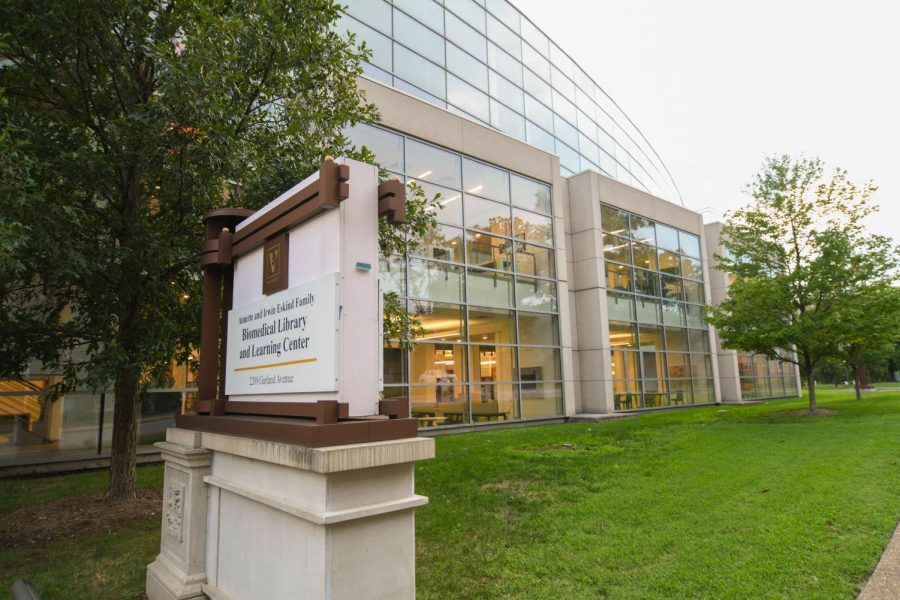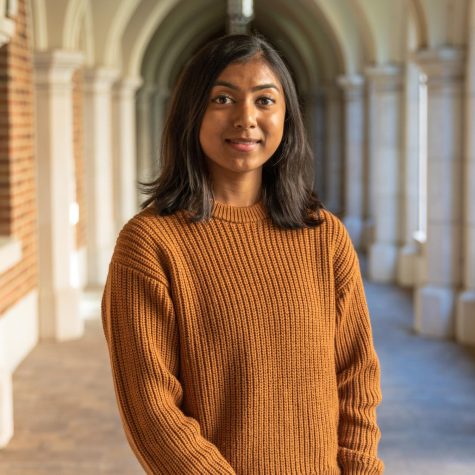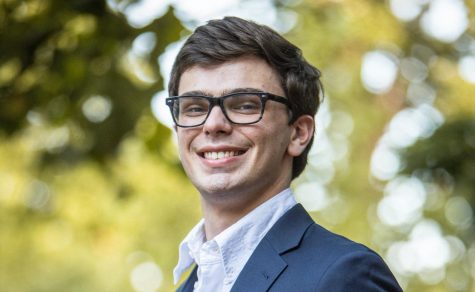In September, Vanderbilt University Medical Center (VUMC) and the University of North Carolina at Chapel Hill received a half-million dollar grant from Google’s philanthropy division, google.org, to fund a COVID-19 gene expression study.
Dr. Jennifer “Piper” Below is the co-principal investigator of the study at VUMC. Below is also an associate professor of medicine at VUMC specializing in Quantitative Human Genetics and was also named one of the 2020 Chancellor Faculty Fellows.
According to Below, the goal of the study is to better understand how COVID-19 changes gene expression and how it impacts the body at a molecular level.
“The hope is that we can start to identify the disruptions that COVID is wreaking havoc on and what biological and biochemical pathways in the functioning of the cell are being disturbed by COVID,” Below said.
The study will analyze samples already taken over the past 16 years from 4,000 participants who are part of the Cameron County Hispanic Cohort (CCHC). Cameron County, Texas, was particularly hard hit by COVID-19, according to Below.
The Design of the Study
Of the 4,000 participants in the CCHC, 250 who have been affected by COVID-19 will participate in the gene expression study as well as 250 unaffected controls.
“The design of this study is to look within individuals and look at RNA that was collected prior to COVID and compare it to RNA that is collected after COVID,” Below said. “Then, compare the two time-points in 250 individuals who tested positive for antibodies for COVID and 250 people who had no symptomatology and test negative for antibodies.”
From this RNA, VUMC researchers will be able to determine changes in gene expression in individuals who have been impacted by COVID-19 and compare this to changes in gene expression that have occurred, within the same time period, in those who have not been impacted by the virus, per Below.
However, according to Below, the study involves more than just taking blood samples from these patients to compare RNA.
“We are actually doing a complete workup of their entire health from measuring their eye health and looking at their retinas to measuring everything about their heart health,” Below said. “Every visit is actually quite an intense, involved process that takes hours.”
The process of recruiting participants from the CCHC and bringing them back in has proved to be difficult during the pandemic, according to Below. They have been making phone calls to every participant in the CCHC to ask about symptomology in an ongoing fashion and so far have 130 participants who have tested positive for COVID-19 or express symptoms consistent with COVID-19.
“Everyone is sort of on a restricted plan right now,” Below said. “We have to be really mindful of keeping everybody as protected and healthy as possible in our clinical research unit. We are limited to only bringing in a handful of people per day. It will just take a bit of time to be able to get reconnected to all of the people, bring them back in and do these full health assessments.”
Per Below, the accruement of data from the 500 participants is expected to take about six months. After sequencing, the data should be available within one year and the results within a year to a year and a half.
The Science Behind Gene Expression and Analyzing RNA
According to Below, there is an important distinction between the genome and gene expression, and in this study, they will be comparing gene expression in participants.
“We expect that the genetic data is going to stay pretty stable over time,” Below said. “The genes themselves, the base pairs inside of them, really are only altered in rare events and get really scrambled in cancer. But in general, it should stay fairly stable over your lifetime. We don’t expect to see COVID-19 making big changes to someone’s genome.”
While a genome remains relatively the same over an individual’s lifetime, gene expression readily changes with various factors that are encountered every day.
“How much your genes are expressed can change as a result of whether or not you had coffee that morning, whether or not you are a sedentary person or an active person, whether you slept well last night,” Below said.
RNA abundance will be used as a proxy for genes to compare gene expression for each participant in the study since proteins degrade quickly.
“Similar to the way you might sequence a whole genome, we can actually sequence the entire transcriptome and from that extract information on the relative abundance of how much RNA is being generated in each of these genes,” Below said.
The CCHC and the Importance of Leveraging Disparities in Precision Medicine
Per Below, the CCHC was originally developed to understand the metabolic health of Hispanics because they are so disproportionately impacted by diseases relating to metabolism and cardiovascular disease such as obesity, type 2 diabetes, dyslipidemia and hypertension.
“At its inception, it was really designed to study, ‘What is the liver function like in this population? What is kidney function like? What is their arterial stiffness? How healthy are their hearts?’ To get a handle on risk factors that might be population specific and might have been overlooked in some of the larger Caucasian-based samples,” Below said.
According to Below, there are few genetics studies that utilize non-Caucasian cohorts, and this can pose an issue in the field of medical research.
“The fact is that there’s incredible disparity in who is the subject of the research that underlies all of modern medicine,” Below said. “It means that it is possible that in this age of precision medicine we risk leaving certain groups of people behind simply because we did not build our model in those groups.”
Per Below, the samples from the CCHC are an unparalleled resource in this population.
“The cohort has really been designed around trying to be able to bring this population into this precision medicine era by doing this really careful and deep phenotyping,” Below said.
Below conveyed her gratitude to the cohort members and their willingness to participate.
“I think it is really important for us to realize that without buy-in from these underrepresented communities, we will never be able to get at the kind of data to avoid risks of a world of precision medicine that is not representative of populations of non-Caucasians,” Below said.
Below also spoke about her excitement for the Google grant.
“I feel like the stars just aligned to have the resources and the personnel needed and then a funder,” Below said. “You should know that in science, it very rarely happens. You frequently have the idea but don’t have the funder or don’t have the personnel that can do it.”















